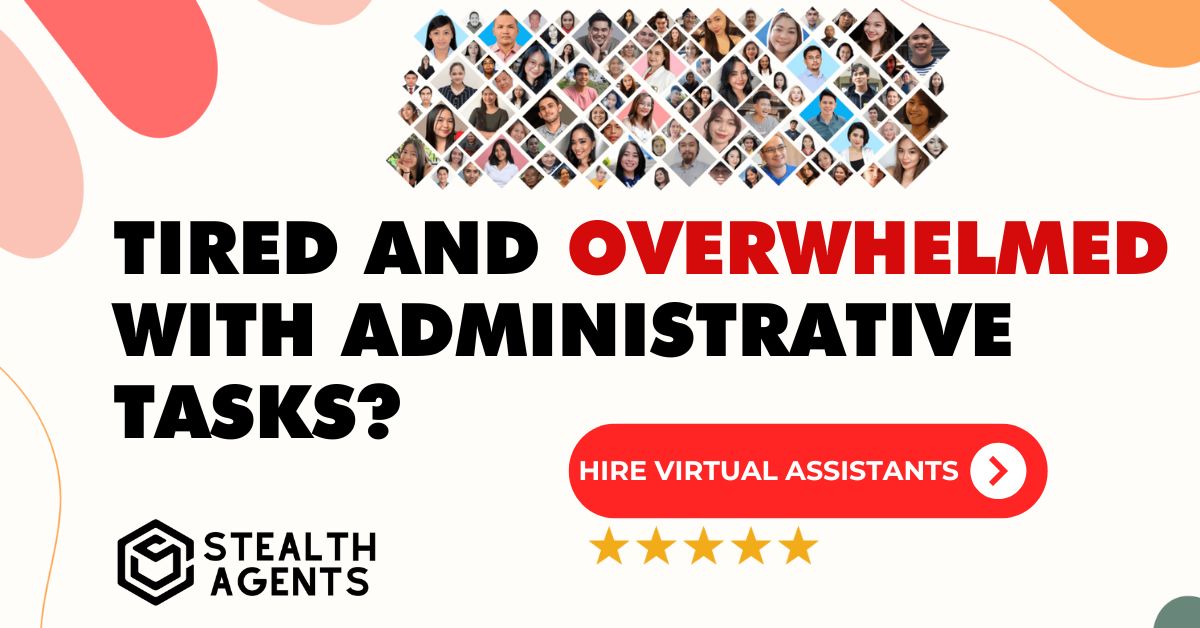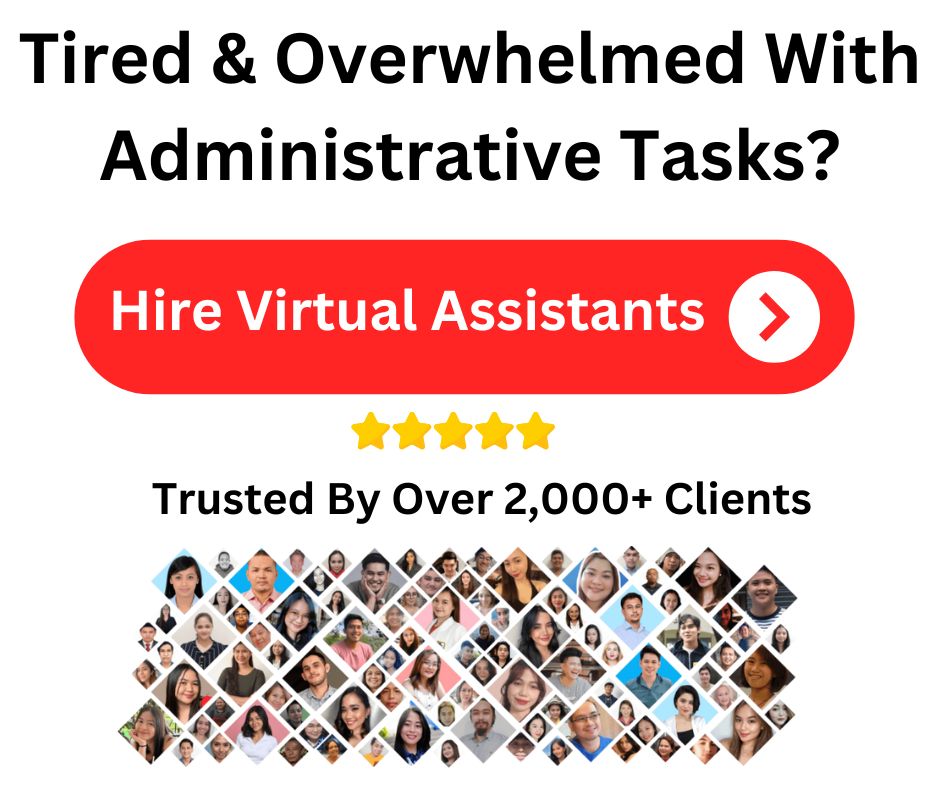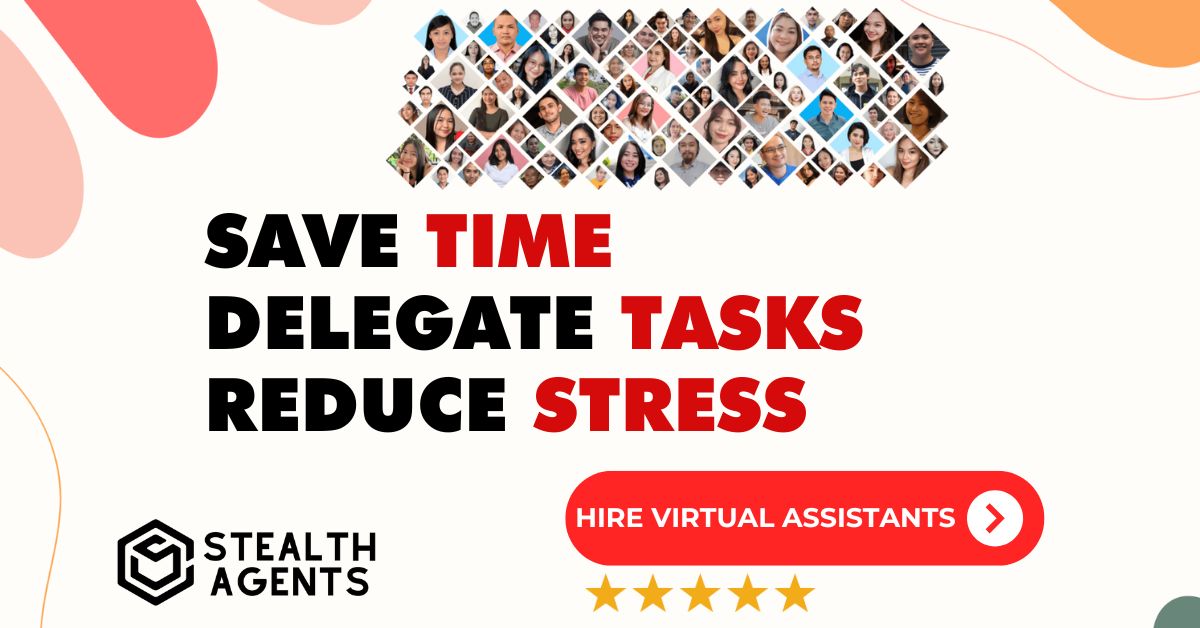In today’s increasingly regulated business environment, maintaining compliance with industry standards and legal requirements is more critical than ever. Non-compliance can result in hefty fines, legal complications, and reputational damage.
According to the Ponemon Institute’s 2023 Cost of Compliance Study, the average cost of non-compliance for businesses has skyrocketed to a staggering $14.82 million. Enter the Compliance Virtual Assistant (CVA) — a specialized professional dedicated to ensuring your business stays compliant with all relevant regulations and standards.
A Compliance Virtual Assistant offers a plethora of services tailored to meet your compliance needs, including policy development, regulatory research, audit preparation, and risk assessment. Leveraging their expertise allows businesses to focus on core operations while confidently managing compliance risks. In a world where regulatory landscapes are continually evolving, having a CVA on your team can be a game-changer for your business.
Stealth Agents is here to help you find the perfect Compliance Virtual Assistant suited to your specific needs. Book a free discussion today to explore your preferences and pricing options, and discover how our tailored solutions can help you navigate the complexities of compliance.
What is a Compliance Virtual Assistant?
A Compliance Virtual Assistant (CVA) is a specialized remote professional who provides support to businesses in adhering to regulatory requirements, industry standards, and internal policies.
Their primary role is to assist in maintaining compliance across various aspects of an organization, thereby mitigating risks associated with non-compliance. This includes tasks such as policy development, audit preparation, regulatory research, and risk assessment.
By leveraging the expertise of a CVA, businesses can focus on their core operations while ensuring they remain compliant with relevant laws and regulations.
What a Compliance Virtual Assistant can do?
1. Policy Development and Documentation
A CVA helps create and update company policies to ensure they align with current regulations and industry standards. They draft clear and comprehensive policy documents, manuals, and procedures that guide employees and stakeholders. Beyond creation, they also manage the implementation of these policies, ensuring that all staff understand and adhere to them. Continuous review and revision of policies are carried out to keep pace with regulatory changes and evolving business needs. Moreover, they play a crucial role in communicating these policies effectively across the organization through training sessions, emails, and intranet postings.
2. Regulatory Research
Staying updated on ever-changing laws and regulations is crucial for compliance. A CVA conducts thorough research to identify applicable regulations, standards, and best practices relevant to the business. This information is then used to inform policy updates and compliance strategies. They also maintain a structured database of regulatory resources, ensuring easy access for future reference. Additionally, CVAs might subscribe to industry journals, attend webinars, and participate in professional networks to stay abreast of the latest developments. This proactive approach ensures that the organization not only remains compliant but also stays ahead of potential regulatory changes that could impact its operations.
3. Audit Preparation and Support
Preparing for audits can be a time-consuming and stressful process. A CVA assists in organizing and compiling necessary documentation, ensuring that all records are accurate and up-to-date. They also help coordinate with auditors and respond to any inquiries during the audit process. Pre-audit preparations include conducting internal reviews to identify and rectify any discrepancies before the official audit. During the audit, CVAs serve as the primary point of contact, facilitating smooth communication between auditors and the company. Post-audit, they assist in implementing recommendations and corrective actions, ensuring that all audit findings are adequately addressed.
4. Risk Assessment and Management
Identifying and managing compliance risks is a critical function of a CVA. They conduct risk assessments to identify potential areas of non-compliance and develop strategies to mitigate these risks. This proactive approach helps prevent issues before they arise. Advanced risk management involves creating comprehensive risk profiles for different departments, and identifying both internal and external threats. CVAs use risk assessment tools and methodologies to quantify risks, prioritize them based on severity, and develop action plans. Regular risk reviews and scenario planning are conducted to prepare for potential compliance crises, ensuring the organization is always ready to respond effectively.
*advertisement*
Tired & Overwhelmed With Administrative Tasks?
Hire A Top 1% Virtual Assistant From Stealth Agents!

Sign Up Below & Hire A Top 1% Virtual Assistant
Rated 4.7 Stars Serving Over 2,000+ Customers.
Hire Top 1% Virtual Assistants For $10-$15 Per Hour
Ask About Our 14 Day Trial!
*advertisement*
5. Training and Education
A CVA develops training programs and educational materials to ensure that employees are aware of compliance requirements and understand their roles in maintaining compliance. Regular training sessions help foster a culture of compliance within the organization. These programs can include online courses, interactive workshops, and compliance bulletins. Training is tailored to different roles within the organization, ensuring that all employees receive relevant information. Follow-up assessments and quizzes are often used to gauge understanding and retention. Additionally, CVAs might organize seminars and invite guest speakers to discuss emerging compliance trends and challenges, keeping the workforce informed and engaged.
6. Compliance Monitoring and Reporting
Ongoing monitoring of compliance activities is essential for maintaining adherence to regulations. A CVA tracks compliance metrics, conducts regular reviews, and generates reports to provide insights into the organization’s compliance status. These reports help management make informed decisions and address any issues promptly. Detailed dashboards and analytics tools can be used to visualize compliance data, making it easier to identify patterns and trends. Automated alert systems can notify relevant personnel of potential compliance breaches, enabling swift action. Regular compliance meetings are organized to review performance, discuss challenges, and plan future compliance initiatives.
7. Document Management
Proper management of compliance-related documents is vital for ensuring accessibility and accuracy. A CVA organizes and maintains records such as licenses, permits, contracts, and inspection reports. They implement digital filing systems and use cloud storage solutions to safeguard documents and facilitate easy retrieval. Comprehensive indexing and tagging methods are employed to enhance searchability. Regular audits of the document management system are conducted to ensure all records are up-to-date and correctly filed. Data security measures, such as encryption and access controls, are implemented to protect sensitive information from unauthorized access and breaches.
8. Regulatory Filings and Submissions
Filing regulatory reports and submissions accurately and on time is crucial for compliance. A CVA manages the preparation and submission of required documents to regulatory bodies, ensuring that deadlines are met and all information is correct. This involves coordinating with various departments to gather necessary information, filling out complex forms, and double-checking for accuracy. Submission calendars and reminder systems are used to track due dates and avoid missed deadlines. After submission, CVAs maintain records of all filings and correspondences with regulatory bodies, ensuring a comprehensive audit trail.
9. Incident Management and Reporting
Handling incidents of non-compliance requires immediate attention and thorough documentation. A CVA assists in investigating compliance breaches, documenting findings, and implementing corrective actions. They also ensure that incident reports are filed with appropriate authorities when necessary. Incident management protocols are established to outline the steps to be taken in the event of a compliance breach. Root cause analysis is conducted to identify underlying issues, and preventive measures are put in place to avoid recurrence. Regular incident drills and simulations are carried out to prepare the organization for real-world scenarios.
10. Vendor and Third-Party Compliance
Ensuring that vendors and third parties adhere to compliance standards is another important task. A CVA conducts due diligence, evaluates vendor compliance records, and manages contracts to ensure that all external partners meet regulatory requirements. This includes conducting background checks, reviewing certifications, and performing regular compliance audits of third-party vendors. Contractual clauses are drafted to enforce compliance obligations, and periodic reviews are conducted to ensure ongoing adherence. CVAs also organize training sessions for vendors to educate them about the company’s compliance expectations and standards.
Benefits of Hiring a Compliance Virtual Assistant
-
Expertise and Knowledge
Compliance Virtual Assistants (CVAs) are well-versed in regulatory requirements and industry standards, providing valuable insights to help businesses stay compliant. They possess specialized knowledge in various compliance areas such as data protection, financial regulations, environmental laws, and industry-specific standards. This expertise ensures that your company adheres to all necessary regulations, thereby avoiding legal pitfalls. Additionally, CVAs often have access to professional networks and resources, allowing them to stay updated on the latest regulatory changes and best practices.
-
Cost-Effectiveness
Hiring a CVA is often more cost-effective than employing full-time compliance staff. You can access specialized skills without the overhead costs associated with permanent employees, such as salaries, benefits, office space, and training expenses. This flexibility allows businesses to allocate resources more efficiently, investing savings into other critical areas like research and development or marketing. Furthermore, CVAs typically offer flexible pricing models, including hourly rates, project-based fees, or retainer agreements, enabling you to find a cost structure that fits your budget.
-
Time Savings
By handling compliance tasks, a CVA frees up time for your team to focus on strategic initiatives, leading to increased productivity and efficiency. This delegation of routine compliance activities allows senior management and key personnel to concentrate on core business functions like growth strategies, client relations, and innovation. The time saved can also be used to enhance operational processes, improve customer service, and explore new market opportunities. In essence, having a CVA helps streamline workflows and ensures that compliance tasks do not hinder day-to-day operations.
-
Improved Compliance
Dedicated attention to compliance activities ensures that your organization remains in good standing with regulatory bodies, reducing the risk of fines and legal complications. A CVA’s proactive approach to monitoring and managing compliance helps identify potential issues before they escalate into significant problems. Regular compliance audits, continuous policy updates, and thorough documentation practices contribute to a robust compliance framework. Improved compliance not only protects the company from legal and financial penalties but also enhances its reputation and trustworthiness in the market.
-
Scalability
CVAs offer flexible support that can be scaled up or down based on your business needs, making them an ideal solution for growing companies or those with fluctuating compliance demands. Whether you require temporary assistance during peak periods or ongoing support as your business expands, a CVA can adapt to your changing requirements. This scalability allows businesses to manage compliance effectively without the need for long-term commitments or substantial investments in additional resources. It also provides the agility to respond quickly to new regulatory challenges or business opportunities.
-
Enhanced Operational Efficiency
With a CVA managing compliance tasks, operational efficiency is significantly enhanced. Streamlined processes, automated workflows, and systematic documentation contribute to a more organized and effective compliance program. This efficiency reduces the likelihood of errors, ensures timely regulatory filings, and facilitates quick responses to compliance inquiries or audits. An efficient compliance system also improves overall business performance by minimizing disruptions and maintaining a steady focus on strategic goals.
-
Risk Mitigation
A CVA’s expertise in risk assessment and management is invaluable in identifying and mitigating compliance risks. By conducting regular risk assessments and implementing preventive measures, a CVA helps protect the organization from potential threats. This proactive risk management approach safeguards the company’s assets, preserves its reputation, and ensures long-term stability. Additionally, having a dedicated compliance professional means that risk factors are continuously monitored and addressed, reducing the chances of unforeseen compliance breaches.
-
Customized Compliance Solutions
Every business has unique compliance needs, and a CVA can provide customized solutions tailored to your specific requirements. Whether it’s developing industry-specific policies, creating bespoke training programs, or managing complex regulatory submissions, a CVA offers personalized support that aligns with your business objectives. This customization ensures that compliance strategies are not only effective but also seamlessly integrated into the company’s operations and culture.
-
Improved Stakeholder Confidence
Demonstrating a strong commitment to compliance can significantly enhance trust and confidence among stakeholders, including investors, customers, and employees. A well-managed compliance program signals that your business operates responsibly and ethically, which is crucial for building and maintaining positive relationships. Improved stakeholder confidence can lead to increased investment, customer loyalty, and employee satisfaction, driving overall business success.
-
Access to Advanced Technology
CVAs often utilize advanced compliance and risk management software to streamline and automate compliance processes. These technologies improve data accuracy, enhance reporting capabilities, and provide real-time monitoring of compliance activities. Access to such tools enables businesses to maintain comprehensive compliance records, conduct thorough analyses, and ensure timely responses to regulatory changes. Leveraging IT virtual assistant technology enhances compliance efficiency and supports informed decision-making and strategic planning.
-
Continuous Improvement
A CVA’s role extends beyond maintaining current compliance standards to fostering a culture of continuous improvement within the organization. By regularly reviewing and updating compliance procedures, conducting employee training, and staying abreast of industry developments, a CVA ensures that the company’s compliance program evolves and improves over time. This commitment to continuous improvement helps the organization remain resilient, adaptable, and competitive in a dynamic regulatory environment.
How to Choose a Compliance Virtual Assistant
Selecting the right Compliance Virtual Assistant (CVA) is crucial for ensuring your business adheres to regulatory requirements, minimizes risks, and operates smoothly. Here’s a comprehensive guide to help you choose the ideal CVA:
1. Define Your Compliance Needs
Start by identifying the specific compliance tasks and responsibilities you need assistance with. Common tasks include regulatory research, policy development, audit preparation, risk assessment, and training. Clearly defining your needs helps in finding a candidate with the appropriate skills and experience.
2. Evaluate Experience and Expertise
Look for candidates with a strong background in compliance, legal, or related fields. Review their resumes, portfolios, and client testimonials to gauge their experience. Previous work in your industry or with similar regulatory requirements can be a significant advantage. Additionally, verify their familiarity with relevant regulations, standards, and best practices.
3. Assess Technical Skills
Ensure that the CVA is proficient in the software and tools commonly used in compliance management, such as compliance tracking systems, document management software, and project management tools. Familiarity with regulatory databases and analytics tools can also be beneficial for monitoring and reporting compliance activities.
4. Check Communication Abilities
Effective communication is essential for managing compliance. Your CVA should have excellent verbal and written communication skills to ensure clear and professional interactions with team members, regulatory bodies, and other stakeholders. Assess their ability to articulate ideas, manage emails, and prepare compliance reports during the interview process.
5. Verify Organizational and Time Management Skills
A successful CVA should be highly organized and able to manage multiple tasks efficiently. This includes handling complex schedules, maintaining accurate records, and meeting deadlines consistently. Assess their ability to prioritize tasks and manage time effectively during the interview process.
6. Consider Cultural Fit
It’s important to choose someone who aligns with your company’s culture and values. During the interview, assess the candidate’s work ethic, personality, and approach to teamwork to ensure they fit well with your existing team and business environment.
7. Evaluate Flexibility and Availability
Confirm that the CVA’s availability matches your project’s needs. Determine if you require part-time or full-time assistance and ensure they can commit to your schedule. Their ability to adapt to changing workloads and priorities is also important for long-term collaboration.
8. Conduct Interviews and Practical Assessments
Interview potential candidates to understand their experience, skills, and approach to work. Consider giving them a small task or project to complete as a test of their abilities. This practical assessment provides insights into their work quality, problem-solving skills, and attention to detail.
9. Review Pricing and Contract Terms
Discuss the pricing structure and contract terms with the CVA. Ensure that their rates fit within your budget and clarify any additional costs. Outline the scope of work, payment terms, and other relevant details in a formal agreement to avoid misunderstandings.
10. Seek References
Ask for references from previous clients or employers to validate the candidate’s credentials and performance. Speaking with others who have worked with the CVA can provide valuable insights into their reliability, professionalism, and work ethic.
11. Start with a Trial Period
Consider starting with a trial period to evaluate the CVA’s performance and compatibility with your business. This trial phase allows both parties to assess the working relationship and make adjustments before committing to a long-term arrangement.
12. Focus on Long-Term Collaboration
Think beyond immediate project needs and consider the potential for long-term collaboration. A CVA who understands your business processes, goals, and strategic vision can provide consistent, high-quality support over time, leading to more effective compliance management and stronger professional relationships.
Why Choose Stealth Agents?
At Stealth Agents, we understand the unique challenges businesses face and are committed to providing tailored solutions that meet your specific needs.
Here’s why Stealth Agents stands out:
1. Experienced Professionals
Our virtual assistants are highly skilled and experienced in various industries. They undergo rigorous screening to ensure they can deliver top-notch service. Each candidate is evaluated for their technical abilities, communication skills, and problem-solving capabilities, ensuring that you receive only the best talent to support your business needs. With Stealth Agents, you gain access to professionals who can hit the ground running and make an immediate impact.
2. Customized Solutions
We work closely with you to understand your business requirements and match you with a virtual assistant who fits your needs perfectly. Our tailored approach ensures that the virtual assistant is not only proficient in the required tasks but also aligns with your company culture and goals. This personalized matching process guarantees that you receive targeted support that enhances productivity and efficiency.
3. Transparent Pricing
We offer clear and competitive pricing options, ensuring you get the best value for your investment. There are no hidden fees or unexpected costs, making it easy for you to budget effectively. Our flexible pricing plans cater to businesses of all sizes, allowing you to scale services up or down based on your current needs and financial considerations.
4. Dedicated Support
Our team is dedicated to ensuring a seamless integration of virtual assistants into your operations. We provide continuous support to address any concerns and ensure smooth collaboration. From onboarding to ongoing management, we are here to assist you every step of the way. Our commitment to proactive communication and problem-solving helps create a harmonious working relationship that maximizes the benefits of having a virtual assistant.
Conclusion
Hiring a Compliance Virtual Assistant is a strategic decision to bolster your organization’s adherence to regulations and operational standards. By delegating regulatory research, documentation management, audits, and policy updates to a skilled virtual assistant, you ensure proactive compliance while focusing on core business initiatives. This approach not only enhances operational efficiency but also mitigates risks and fosters a culture of compliance within your organization.
A Compliance Virtual Assistant brings specialized knowledge of regulatory frameworks and industry standards, ensuring thorough and accurate compliance management. Their expertise allows for timely responses to regulatory changes and proactive identification of compliance gaps, thereby safeguarding your organization’s reputation and sustainability.
Investing in a Compliance Virtual Assistant demonstrates your commitment to ethical practices and regulatory integrity. Embrace the opportunity to streamline compliance processes, reduce compliance-related costs, and uphold organizational excellence. Let a Virtual Assistant be your partner in navigating regulatory complexities and achieving compliance excellence with confidence.










